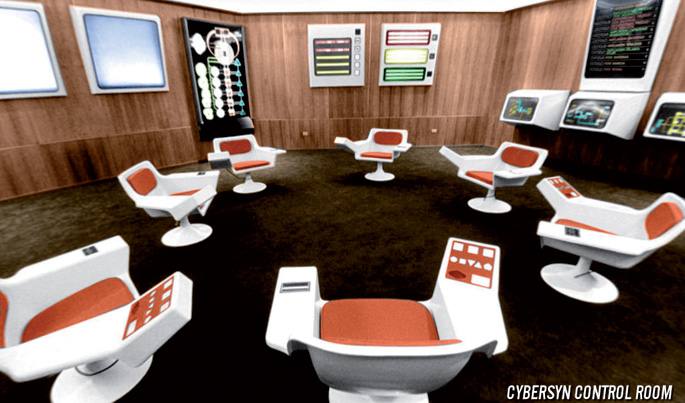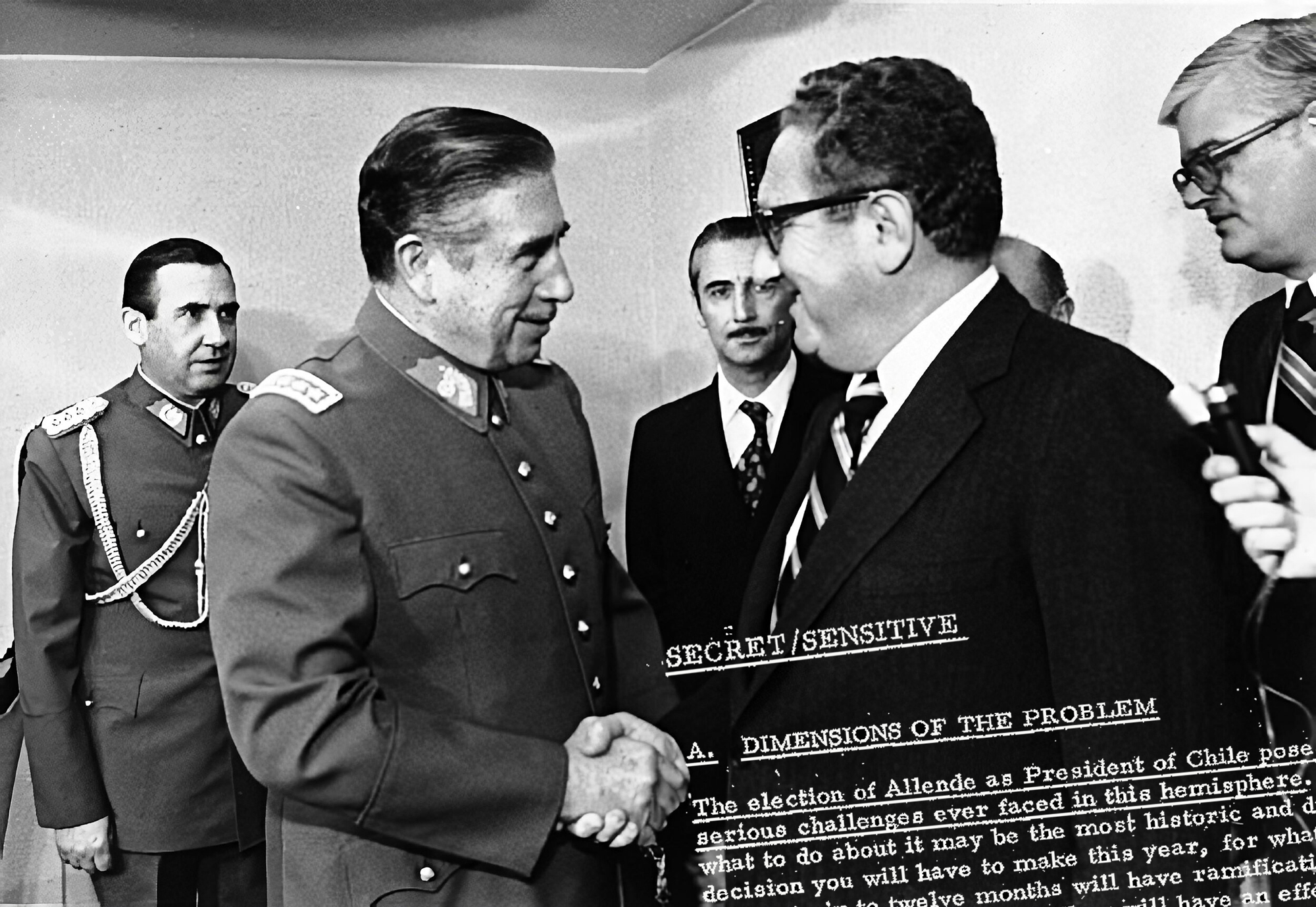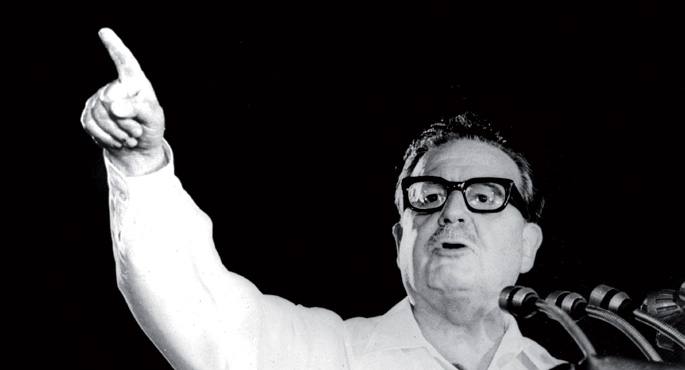In Cybersy, Allende wanted to launch the Socialist Internet
- On September 11, 1973, the coup d'état of General Augusto Pinochet interrupted the democratic revolution of the Chilean left led by Salvador Allende.El also caused the death of Cybersy, a computer system organized with the objective of connecting nationalized companies, workers and political authorities in the information network.

Chile lost a great deal in 1973 – it was 40 years old on September 11 – when the US Government, accompanied with no major disgust, suspended with a fascist military coup the democratic path towards the socialist system led by Salvador Allende. The death of tens of thousands of citizens, the exile and misery of many others, the brutal oppression of all freedom, the brutal implantation of the neoliberal economy, the melting of culture...
Several media outlets have recently recalled a special experience that resulted in the disappearance of Augusto Pinochet. In the British left-wing magazine Red Pepper, Leigh Phillips publishes “Allende’s socialist internet,” by The Guardian, Andy Beckett “Santiago dreaming,” in Madrid Eldiario.esen, Angela Precht “Cybersyn Project: The Cyber People of Salvador Allende”. The story is starred by Chilean politicians and militants who led Allende and by Chilean and British technicians who have gathered around the figure of Stafford Beer.
In 1970, Allende nationalized several vital companies to the Chilean economy after the inauguration of the Santiago government. The state of Chile took over the succession of mining companies to U.S. multinationals. It also laid down agricultural reform. Soon the Government of Santiago found the problems to manage all these companies well. In addition, many other companies, occupied by workers, transformed into cooperatives, were under a certain degree of union and left-wing control.
In 1970, Allende put Fernando Flores, 29, at the head of the coordination between nationalized companies and the state. Flores and his advisor, Raúl Espejo, met Stafford Beer who taught in business management informatics and proposed to hire him.
To organize this chaos of information and company that was increasingly coordinated by the authority of Santiago, they asked Beer to organize in Chile the system he named in the book The Brain of the Firm Viable System Model (VSM): “The system is viable in an organization that allows the changes needed to survive in a changing environment.”
Professor Paul Cockshott summarized that Beer’s Cybersyn could help in economic planning after capitalism because “the great advantage of this experiment was that it was designed to work at the time (real-time system) and not making decisions every five years as they did in the Soviet Union.”
A year later, in 1972, they had already established the first step of the new system. This is 500 telex telephones acquired by the previous government and transferred in the margin, which were placed in factories associated with the IBM 360 central computer in Santiago. The experiment started.
Decentralized, faster
The Cybersyn project aimed to make short-term forecasts with the information that was sent each day from each company to propose improvements. Organised on four levels (businesses, areas, departments, shops), the network allowed the managers of the Opsroom Main Operating Room to discuss the results and draw up general plans.
Opsroom's photograph is the image of this chronicle. A hexagonal, paperless room with information on the screens, not numerical but graphical, with seven futuristic seats equipped with tools with very few buttons... The tools that any unemployed person has at home today seemed like science fiction at the time. Bauhaus and Gestalt were invented by Italian designer Gui Bonsiepe.
In 2013, the book “Cyber Revolutionaries. Technology and politics in the Chile of Salvador Allende” is a book in which Eden Medina has interviewed many of the participants of the experience. Medina has said that, like the Allende Government, the system that Beer engineers intended to implement escaped from the centralized model of neighbouring countries of Cuba and the Soviet Union.
Beer’s Viable Systems Model (VSM) proposes that, as the brain makes important decisions in a body but does not control everything, a viable system must be built with high-level sections of autonomy. How to organize the electronic nervous system of Chilean society so that they were interconnected in a communication network at the national level. This should help to promote equality among citizens, hence Leigh Phillips’s definition of “Allende’s socialist internet”.
Allende did not soon forget the importance of the project. Prior to his death in 2002, Beer explained that “together with the whole Viable Systems Model I explained everything in one; until then I had never worked with anyone who understood half the word I had proposed.”
But since Allende was a medical pathologist, he soon realized that Beer's model had a great breath of biology. Eden Medina says that as Cybersy defined his intention, Allende himself tried to consolidate the political aspects of the project, that the system was decentralized, open to the participation of the workers and opposed to the bureaucracy.
Among the practical fruits of Cybersyn, he always highlights what helped the Chilean leftist government, sugary by the right and the CIA, on a strike that the merchants and truckers organized him twice in 1972. With the risk of daily meals of the population, more than 500 telephones installed in the companies allowed the coordination of food stores and the 200 truckers who remained faithful to the government, minimizing the effects of the crisis.
Leigh Phillips has written that Cybersy was the example of a post-capitalist society that paved the way for citizens to take power. On the contrary, the author of the introduction of the project in the Spanish Wikipedia says: “The system for its time was too advanced to be able to use these types of tools in an unaccustomed social system.”
One of the protagonists, Fernando Flores, said: “Cyber has limited power when someone is trying to kill you.” Cybersy was also masked by the military on 11 September 1973.
Halaxe zioten Txileko Ramona Parra brigadako (BRP) kideek 1970eko hamarkadan. Pintura arma eta kalea mihise hartuta, muralgintzan lan eder bezain oparoa egin dute azken lau hamarkadetan, baita Pinocheten diktadura odoltsuaren garaietan ere.
Irailak hamaika izan ditu gaur, egun berezia Txilen. Gaur Pinochetek Txilen estatu kolpea eman zuenetik 41 urte iragan dira. Salvador Allende erail zuten orduan, eta harekin batera herria eraikiz zihoan amets ugari lurperatu zituzten.
1973ko irailaren 11n, Augusto Pinochetek estatu kolpea jo zuen Txilen eta, berriki baieztatu denez, Salvador Allendek bere buruaz beste egin zuen. Horrenbestez, 16 urteko diktadura iluna hasi zen Hego Amerikako herrialdean, eta Salvador Allendek hiru urte lehenago... [+]
Augusto Pinochetek Txilen egindako estatu kolpetik 40 urte beteko dira irailaren 11n. Gasteizko gaztetxean ekitaldi desberdinak antolatu ditu Askapenak 40. urteurrenerako.

















